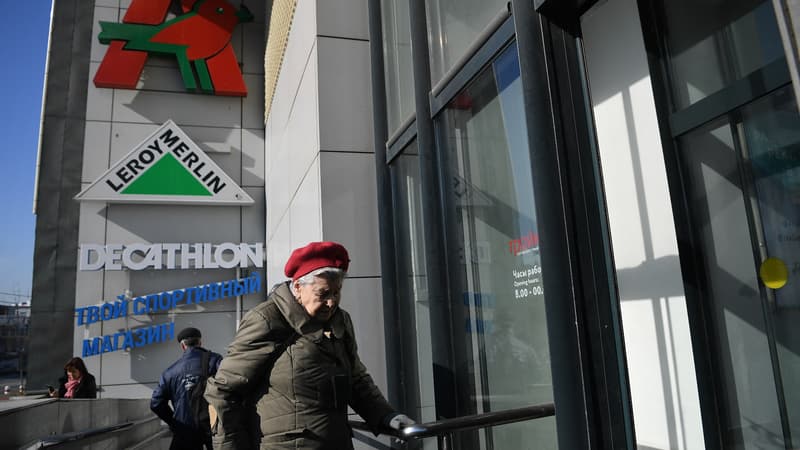Out of fear, out of necessity, or out of choice. One year after the start of the war in Ukraine, some multinationals continue their activity in Russia, in whole or in part, despite the risk of damaging their image there.
According to data collected by Yale University, 210 international companies continue their activities without changes. Among them, about twenty French companies are facing various realities.
Industry, food industry, hairdressers
Industrial companies -Valeo, Vinci, Bic, Orano or Veolia-, specialists in the food industry -Auchan, Bonduelle or Lactalis- or even brands -Etam, Clarins, Lacoste, La Redoute- continue to sell in Russia, either in their stores or via e-commerce. And others have franchises in their name that continue to welcome their clients, such as Dessange or Camille Albane hairdressers.
Some of the companies have made the decision not to cut ties with Russia completely, but to stop any new investment or development projects in the country. This is particularly the case with Engie or Totalenergies, which continue to operate in the country to enable deliveries of Russian gas to Europe.
This is also the main reason companies cite for keeping them: the sanctions do not affect the areas in which they operate. On the occasion of its publication of annual results, some reported, such as Faurecia, that it “decided to disassociate itself from Russia” on Monday, February 20.
The price to pay: from the amortization of assets to the boycott
“The later you leave, the more difficult it is,” say some experts. The later companies decide to leave the country, the more difficult it is for them to do so. And the more it costs them, one might add.
In fact, Russian assets have lost much of their value and the Russian government has taken steps to prevent a wave of outflows. In case of sale of a subsidiary, a buyer must be found without selling the activity, which can only be a Russian buyer. Danone, which announced its departure in October, is still looking for a buyer. Renault recorded a charge of 2 billion euros for the sale of a subsidiary in Russia, resulting in a net loss for the year.
Agri-food companies justify their presence by the need to feed the civilian population, but they do not escape controversy due to the fact that their products are sent to the front lines to feed the soldiers. Earlier this year, Bonduelle denied sending food packages to Russian soldiers and being the source of the statements of support sent in these packages.
At the end of last week, the Mulliez group, owner of Auchan and Leroy Merlin, still present in Russia, was accused by the daily The world to contribute to the war effort, supplying cans or coffee. On Friday, in a press release, Auchan Retail stated that it “does not provide voluntary or active assistance to any supply categories of consumers other than the Russian civilian population.” In addition, the distributor has recalled that it left its stores open in Russia, “as it happens in Ukraine for the Ukrainian population.”
Source: BFM TV


